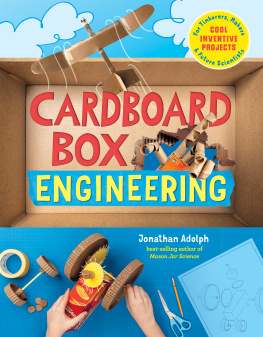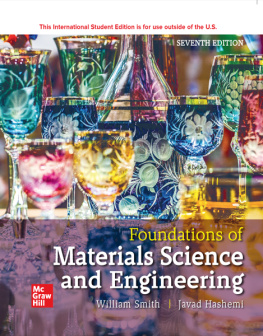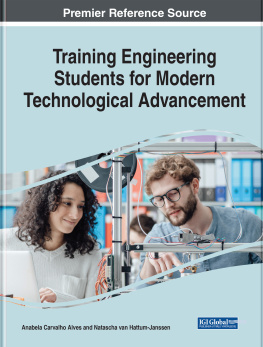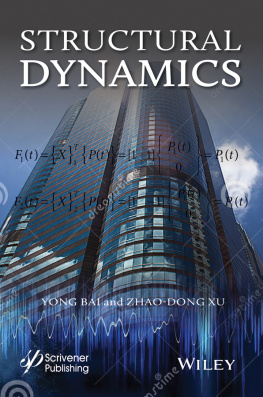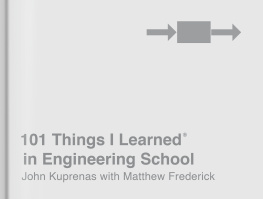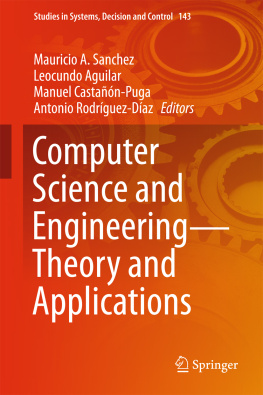Inventive Engineering: Knowledge and Skills for Creative Engineers
Tomasz Arciszewski
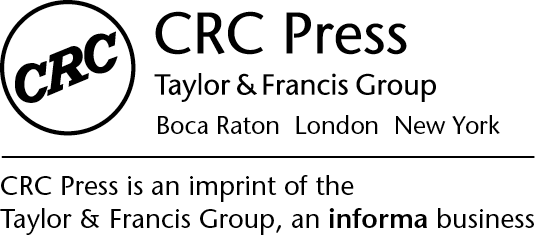
CRC Press
Taylor & Francis Group
6000 Broken Sound Parkway NW, Suite 300
Boca Raton, FL 33487-2742
2015 by Taylor & Francis Group
CRC Press is an imprint of Taylor & Francis Group, an Informa business
No claim to original U.S. Government works
Version Date: 20160226
International Standard Book Number-13: 978-1-4987-8822-9 (EPUB)
This book contains information obtained from authentic and highly regarded sources. Reasonable efforts have been made to publish reliable data and information, but the author and publisher cannot assume responsibility for the validity of all materials or the consequences of their use. The authors and publishers have attempted to trace the copyright holders of all material reproduced in this publication and apologize to copyright holders if permission to publish in this form has not been obtained. If any copyright material has not been acknowledged please write and let us know so we may rectify in any future reprint.
Except as permitted under U.S. Copyright Law, no part of this book may be reprinted, reproduced, transmitted, or utilized in any form by any electronic, mechanical, or other means, now known or hereafter invented, including photocopying, microfilming, and recording, or in any information storage or retrieval system, without written permission from the publishers.
For permission to photocopy or use material electronically from this work, please access www.copyright.com or contact the Copyright Clearance Center, Inc. (CCC), 222 Rosewood Drive, Danvers, MA 01923, 978-750-8400. CCC is a not-for-profit organization that provides licenses and registration for a variety of users. For organizations that have been granted a photocopy license by the CCC, a separate system of payment has been arranged.
Trademark Notice: Product or corporate names may be trademarks or registered trademarks, and are used only for identification and explanation without intent to infringe.
Visit the Taylor & Francis Web site at http://www.taylorandfrancis.com
and the CRC Press Web site at www.crcpress.com
CRC Press is a premier publisher of scientific, technology and medical content, reaching around the globe to publish the pioneering achievements of science that provide researchers, professionals, and students with the resources they need to make further advances. CRC Press is a member of Taylor & Francis Group, an informa business.
For more authoritative books in your field and for in-depth information about CRC Press books, visit www.crcpress.com
- Join our email list to receive exclusive, unadvertised discounts and alerts when new books publish in your field
- Visit Featured Authors to learn about your favorite author with detailed bios, news about their work, and discussions of their research
- Read the latest book reviews from industry experts, influencers, and thought leaders about STM (Science, Technology and Medicine) reference and textbooks
The tables in this ebook have been modified to enhance the reader experience. On compatible devices, the enhancement should keep the header rows visible as you scroll through a table.
Please report any issues with this ebook or any desired enhancements to the .
www.crcpress.com
Foreword
Ours is a rapidly evolving professionone that demands a high level of specialized knowledge and a voracious intellectual appetite capable of keeping pace with technological advances. Perhaps the most critical attributes to seek and nurture are our ability to lead effectively, act ethically, communicate clearly, and manage efficiently. Engineers who possess these skills will not only enjoy greater personal success but will also make more meaningful contributions to their businesses and to society as a whole.
Beyond what we know, Arciszewski invites readers to consider why our expertise matters, and how we approach these changing demands. Knowledge is the bedrock, but fertile imaginations are the topsoil where innovation takes root. Creativity and the ability to apply knowledge in novel ways become differentiating factors in the talent marketplace.
Arciszewski continues to advance this vital conversation about the future of engineering with clear writing, compelling ideas, and practical advice. At the same time, he continues to fearlessly color outside the lines, inviting us to see the big picture from a new perspective. He invites engineers to be as creative as we are analytical. He embraces a refreshingly holistic approach, asking us to focus first on rewarding and creative work that fuels personal satisfaction and genuine happiness. This, in turn, leads to career advancement. Too many of us have that equation reversed, and too many young people start their engineering careers focused on the wrong outcomes. While Arciszewskis previous book was written for instructors and academic administrators, this edition speaks directly to engineering students. The two create a unique synergistic unity.
Arciszewski coined the name Inventive Engineering in the 1990s while teaching courses by the same name at George Mason University. The name reflects a new way of framing deeply rooted concepts for a modern era. In his typical style, Arciszewski offers a comprehensive explanation of how this term found its way into the modern lexicon of professional engineering, examining its roots in cognitive, philosophical, and biological underpinnings. He traces the lineage of inventive engineering from ancient Asia to the European Renaissance and from the writings of Greek philosophers to the works of futurist Richard Florida.
In a demonstration of boundary-spanning thought leadership, Arciszewski invites readers to think more broadly about our profession. He challenges us to demand more of ourselves and those we prepare for careers in engineering, and he expands our lexicon with language and ideas that need to become more commonplace in engineering.
Everyone who reads this will interpret the words and ideas with different points of view. All will be invited to lift their noses out of the blueprints, seek opportunities for experimentation, and think about how we can seek better ways to serve humanity.
Jeffrey S. Russell
University of Wisconsin-Madison
Preface
I have been studying, practicing, and teaching Inventive Engineering for the last 45 years. As a result of that, I have discovered a secret, which is the key to becoming an inventive engineer. This secret has compelled me to write this book. Learning about the methods is necessary but grossly insufficient. A student must undergo a transition from an analyst (specializing in solving analytical problems) to a person also capable of developing new engineering ideas, or inventions. This transformation requires understanding the process and acquiring a balanced body of knowledge, including not only knowledge about methods but also my unique integrated knowledge with roots in several domains. This second kind of knowledge is absolutely critical to motivate the student and to prepare him or her for the most important transition in life.
The book answers three fundamental questions: Why learn inventive engineering? (Chapter 1), What is the fundamental knowledge behind inventive engineering and what is our new science? (Chapters 2 through 5), and finally, How to practice inventive engineering? (Chapters 6 through 10). The book has its roots in engineering, systems science, cognitive psychology, heuristics, history, and political science. The presented knowledge is integrated as a result of my years of interdisciplinary studies and cooperation with many scholars in various areas.


